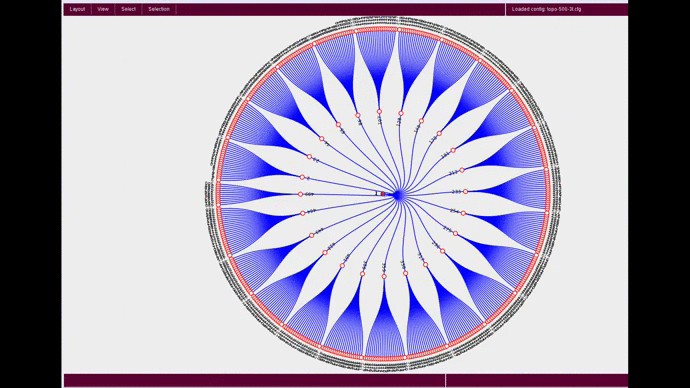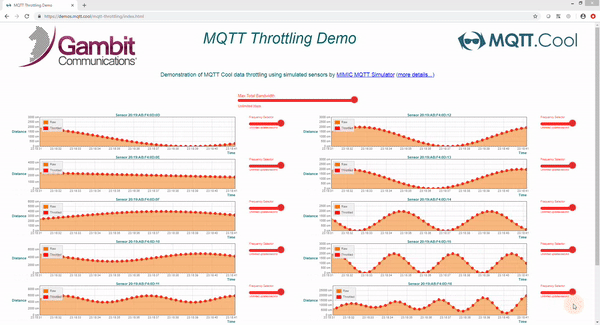MIMIC JUNOS Simulator is a flavor of command line interface (CLI) which
is implemented as part of the
MIMIC CLI / IOS Simulator
![]() and is an optional MIMIC protocol module that allows to simulate command line
SSH modules.
and is an optional MIMIC protocol module that allows to simulate command line
SSH modules.
It can be enabled after the base MIMIC installation as below.
-
At this point you should have MIMIC installed, and the MIMICview GUI
running
(see details)
 . If you don't have MIMICview running, please consult your license e-mail
to get it installed and running.
. If you don't have MIMICview running, please consult your license e-mail
to get it installed and running.
-
Check whether you already have TELNET and SSH enabled in MIMIC as shown in the
Help -> About Mimic... dialog in MIMICview. It should be listed
under Loaded protocols. If already there, then skip to step 7.
-
Run Protocol Wizard using the Wizards -> Protocol Wizard menu in
MIMICView
(see details)

-
Select IOS Simulator in Select Protocols dialog
if not already selected. Press Next.
-
Supply corresponding license keys from the license email in the
Supply License Keys dialog. Then press Next.
-
The Result Installing/Uninstalling Protocols dialog shows
what got done. Press Finish to proceed. When the
simulator restarts, you should have CLI Simulator enabled.
Download optional sample JUNOS packages
-
At this point, you should have CLI Simulator enabled in MIMIC as shown in the
Help -> About Mimic... dialog in MIMICview. TELNET, SSH should be listed
under Loaded protocols. If not, send us the MIMIC log.
(see details)

-
Invoke the MIMICview Wizard -> Update menu to download and
install JUNOS simulation which is listed under
Device Library.
(see details)

Firewall permission for www.gambitcomm.com , port 80 is needed to run the Update Wizard over the web.
Please visit this link for alternative MIMIC update instructions in case you don't have Internet to use the Update Wizard over the web connection on the MIMIC system:
http://www.mirror1.gambitcommunications.com/update/mibs/mimic-update-xxxx/
where xxxx is current MIMIC version e.g. for 20.10 it is 2010
Configure a JUNOS device
-
After the installation is complete, load the lab configuration
junos.cfg using the MIMICview File -> Open menu.
(see details)

-
Select agent 1 and invoke the Edit -> Configure -> All dialog.
(see details)
 .
Go to the Advanced tab and select SSH for protocol.
Keep others as they are.
.
Go to the Advanced tab and select SSH for protocol.
Keep others as they are.
NOTE: If you are running a SSH server on your MIMIC host, by default it will prevent starting simulated SSH servers on the standard port. You can either configure your simulated SSH servers on a different port, or instruct the host SSH server to only listen on a single IP address, eg. on Linux change the ListenAddress in /etc/ssh/sshd_config. You can configure different ports in MIMIC agent using respective tabs in Edit -> Configure -> All dialog.
-
Start the agent and now it is accessible using both SSH and Telnet
clients and it has full support of JUNOS commands that are implemented
in MIMIC.
Default username/password is lab/lab123 and enable mode password is enable123
-
You can implement any CLI in your own simulated device by applying the
rule files similar to ones found in our JUNOS Device Library, e.g.,
juniper.rul.
Moreover you can add more commands by following same procedures for the
commands that already exist in those rule files.
Please invoke the Help->Contents menu and refer to the section
"Optional Protocol Modules->MIMIC TELNET Protocol Module Guide", or
on the cloud
 .
.
Enable CLI Simulator in MIMIC
MIMIC JUNOS Simulator
MIMIC simulations can be configured to respond to CLI commands over SSH/TELNET connections through use of pre-configured rule files.
The simulations, when configured to use TELNET, are associated with specific rules files. The rules file in use can be configured by clicking the telnet tab in either the Edit -> Add Agent dialog (when adding the agent to the MIMICView GUI) or the Edit -> Configure -> TELNET dialog (for existing agents).
The rules file contains instructions for the simulation to use in matching its response to CLI commands received. These can be static (canned) responses, or dynamic by invoking procedures using the MIMIC TELNET extensions. Our online help provides reference for the available commands found in the MIMIC TELNET extensions, as well as usage examples.
We ship a sample rules file with MIMIC which can be found in the mimic_installation_dir/scripts/telnet directory. This is a default rules file which is used when any simulation is configured to run telnet protocol. Also in the same directory are .mtcl files. These sample files contain a subset of the possible CLI commands and are provided as guidance to users who wish to expand the simulations' CLI support.
We encourage you to look at the rules files and associated scripts for an idea on the type of configuration which will be required to accommodate your testing needs.
MIMIC CLI Recorder
The MIMIC CLI Recorder is a utility used to create basic CLI simulations. One or more sessions between a telnet client (or management application) and a CLI device can be recorded and used as input for the recorder.
The recorder will produce a rules file, which can be used for responding to CLI commands from a TELNET/SSH client or as a basis for adding support for the additional CLI commands. MIMICView has the Wizard -> CLI menu for this purpose.
Please see the MIMIC Online Help sections for IOS Simulator Guide for
further guidance, or
access it here
![]() .
.


